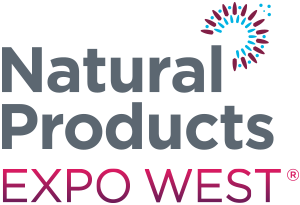
Disruption and community key drivers of food accessDisruption and community key drivers of food access
At Natural Products Expo West, we'll highlight three innovative, boundary-pushing initiatives that are delivering healthy food to everyone, everywhere. Are these models about healthy food? Well, yes ... and so much more.

If there’s one topic that gets me fired up (OK, there is more than one), it’s access—access to healthy, affordable food that I believe is the foundation for a healthy life. Access to dietary supplements that help combat nutrient deficiencies, which are all too common domestically and around the globe (in part due to food insecurity). Access to household products and cosmetics that are free from harmful chemicals but don’t cost a fortune. And, perhaps most importantly, access to the information and education needed to understand the benefits of these products.
Food access is a complicated issue. And to think that healthy products will soon be as affordable as mass-produced, chemical-laden crap is to ignore the important nuances of production, conscious business, fair trade, meaningful partnerships, sustainability, certifications, education and more that make natural products so beneficial to our health and our environment. These things don’t come at a cheap price—nor should they.
Yet innovations are happening across the country to bring these products and ideas to more people. Scaling access to healthy products is possible thanks to some important things happening at the "top" of our food system, as our Natural Products Expo West Friday keynote speaker, CEO of Campbell Soup Company Denise Morrison, can attest to.
But our session, Disruptive Models that Deliver Healthy Food To Everyone, Everywhere, at Expo West isn’t about reformulations or conventional going natural (without a doubt, these are important shifts that are contributing, in big ways, to healthy food access). The models we’re talking about start small—and can happen in every neighborhood, in every community, in every little and big town across this country.
These models aren’t about preaching; they’re about doing. They aren’t about changing first; they’re about understanding before acting. And, ultimately, what each of these models—from school lunch food trucks to give-what-you can restaurants and a technology-based food share platform—proves is that the future of food access is about both thinking outside of the box and about understanding the needs within your community to deliver something healthy and meaningful. Our panelists will discuss how saving potentially wasted foods can help solve food insecurity, how some of the country's tastiest restaurants can deliver affordable, delicious foods to all people and why reaching our youth in ways they can appreciate is critical to a healthier tomorrow.
Change needs to come from both the top down and the bottom up. Are these models about healthy food? Well, yes, but what they’re really about is community and connection. After all, for centuries food has been a force that can unite us. And isn't that what we need most now?
Our presenters each bring an inspiring perspective on the topic of food access. What they all have in common: disruption.
"When it comes to access, everyone thinks soup kitchen … and we are not that," said Kathleen Baumgardner, cofounder and executive director of FoCo Café in Colorado. "We are one of the highest-rated restaurants in Fort Collins," she said, proving how her model transcends what many think of when it comes to access. FoCo Café has become not just a place where people in all types of circumstances can get great food but also a community gathering place.
Similarly, Mara Fleishman, CEO of the Chef Ann Foundation, says that the future of access is about continuing to push the envelope. The Chef Ann Foundation, a leader in school nutrition, has introduced a new initiative that is quite literally driving the movement forward with healthy school lunch food trucks (take me back to eight grade … please?).
While these models all start small, it’s clear that the more people we talk to, the more communities that become engaged and the more businesses participating, the more likely we are to scale these scrappy, disruptive efforts. "Our main mission is to foster an entire new ecosystem of businesses that want to save food," said Jessica Pautsch, founder and CEO of Mesh Exchange. Save food: those words hold a lot of power.
Interested in joining the conversation? We'd love to see you on Friday at Natural Products Expo West.

What: Disruptive Models that Deliver Healthy Food To Everyone, Everywhere
When: 10 - 11:15 a.m., Friday, March 10, 2017
Where: Marriott, Grand Salon G
About the Author
You May Also Like





